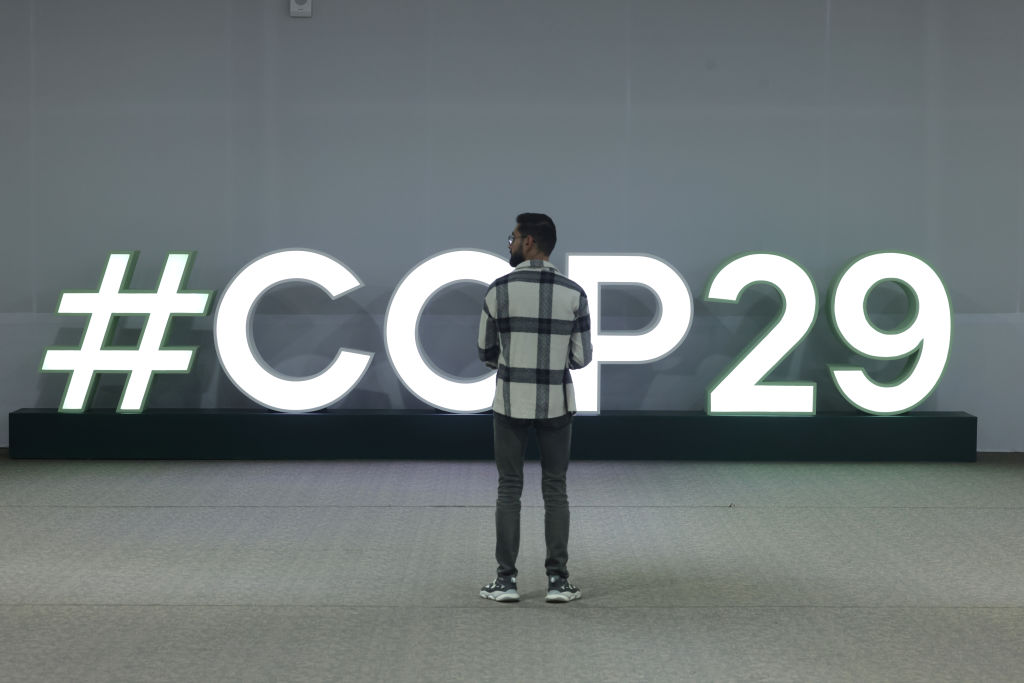The 29th United Nations Climate Change Conference (COP29) in Baku, Azerbaijan, is a pivotal moment for African nations advocating for significant climate finance to address the dire consequences of climate change on the continent. The re-election of U.S. President Donald Trump, a known climate change skeptic, casts a shadow over negotiations, raising questions about future global commitments.
A Continent at a Crossroads
“Africa contributes the least to global greenhouse gas emissions yet suffers the most from climate change impacts,” says Dr Christopher Trisos, Senior Research Officer at the African Climate and Development Initiative (ACDI) at the University of Cape Town. In an interview with FORBES AFRICA,Trisos emphasizes the urgency: “The 2020s must be a decade of accelerated climate action if we are to limit the worst impacts of climate change. Delays now mean increased warming and more severe consequences for the continent.”
African nations face intensified droughts, floods, and extreme weather, threatening livelihoods and economies. The Intergovernmental Panel on Climate Change (IPCC) warns Africa is among the most vulnerable continents due to high exposure and low adaptive capacity.
The Impact of Trump’s Re-election
Loading...
Trump’s return introduces significant uncertainties into negotiations. “The re-election of Trump puts the U.S. delegation in a difficult position,” Trisos notes. “Having an outspoken climate change denier back in the White House is a setback for enhancing action within the United States and globally.”
Previously, Trump withdrew the U.S. from the Paris Agreement, undermining international efforts. His stance raises fears of diminished support for crucial climate initiatives. “It complicates the picture because with his isolationist and anti-climate action policies, the U.S. will be seen as a much less trusted partner,” Trisos adds.
South Africa’s Leadership and Challenges
As Africa’s most industrialized nation and largest emitter, South Africa plays a critical role, balancing economic development with the imperative to reduce emissions.
South Africa’s Just Energy Transition Partnership (JETP), announced at COP26, involves $8.5 billion in funding to support the shift from coal to renewables. However, implementation faces hurdles requiring a balance to increase renewables without constraining economic development.
The Quest for Equitable Climate Finance
At COP29’s heart is establishing a New Collective Quantified Goal (NCQG) on climate finance. Despite a decade-old pledge by developed nations to mobilize $100 billion annually by 2020, this target hasn’t been fully met. “It’s widely acknowledged they missed that target,” says Trisos. “Developed countries often do the accounting themselves without independent audits, leading to disputes over actual amounts delivered.”
According to a report by the United Nations Conference on Trade and Development (UNCTAD), developing countries require around $1.1 trillion annually from 2025, rising to $1.8 trillion by 2030. The NCQG aims to reflect these needs based on scientific assessments.
“Getting the climate finance right is essential,” Trisos asserts. “It’s not just about numbers; it’s about equitable distribution and ensuring that finance doesn’t increase debt burdens on developing nations.”
Voices from the Continent
At COP29, Ambassador Seyni Nafo, Coordinator of the Africa Adaptation Initiative, emphasized the need for increased climate finance. He stated, “The new collective quantified goal on climate finance must reflect the real needs of developing countries, particularly in Africa, to build resilience against climate impacts.”
Youth activists are making their voices heard. Ayakha Melithafa, a South African climate activist and member of the Presidential Climate Commission, stressed the importance of immediate action: “We are the generation that will face the consequences of inaction. Our leaders must commit to real change now.”
Challenges in Carbon Markets and Offsets
Carbon offsets and trading mechanisms are contentious at COP29. While they offer potential pathways for climate finance, concerns about effectiveness persist. “There have been recent scandals in voluntary carbon markets where the amount of carbon offset was inflated,” Trisos points out. “This undermines trust and can result in a worse situation if emissions are not genuinely reduced.”
Lack of robust regulations raises greenwashing risks. “The rules adopted are not clear enough on what happens if, for instance, a forest planted as a carbon offset burns down due to climate change,” he explains. “We need stringent standards to ensure environmental integrity.”
Navigating Global Conflicts and Military Emissions
Global conflicts and military activities add complexity. “The world’s militaries are massive emissions operations,” says Trisos. “For example, the U.S. military, if it were a country, would rank high globally in emissions.”
He cautions against militarizing climate solutions: “Viewing climate change as a security threat to be solved by militaries reduces the opportunity for creating a more just future through collaboration and equitable finance.”
Financing Africa’s Climate Future
Despite challenges, pathways to a sustainable future are emerging, and redirecting global finance toward climate action is essential. “There is more than sufficient global finance to address the climate crisis,” notes Trisos. “What’s missing is the regulation and political will to allocate that finance towards climate action rather than fossil fuels.”
Innovative financing mechanisms, like a global frequent flyers tax, could generate funds without burdening developing nations. African nations are prioritizing regional collaborations and renewable energy projects.
As COP29 progresses, urgency for concrete action intensifies. While Trump’s re-election raises uncertainties, African nations remain resolute. “Climate finance is not charity; it’s a matter of justice,” asserts Trisos. “Those who have contributed most to the climate crisis must support those who are bearing the brunt.”
Ultimately, COP29’s success hinges on nations’ ability to rise above political challenges and uphold commitments. “African countries are at a crossroads,” Trisos concludes. “The decisions made today will determine whether we can build a more sustainable and equitable future.”
Loading...
